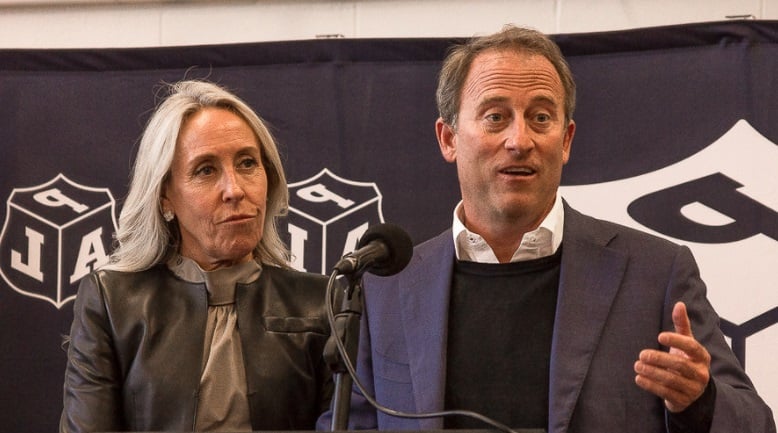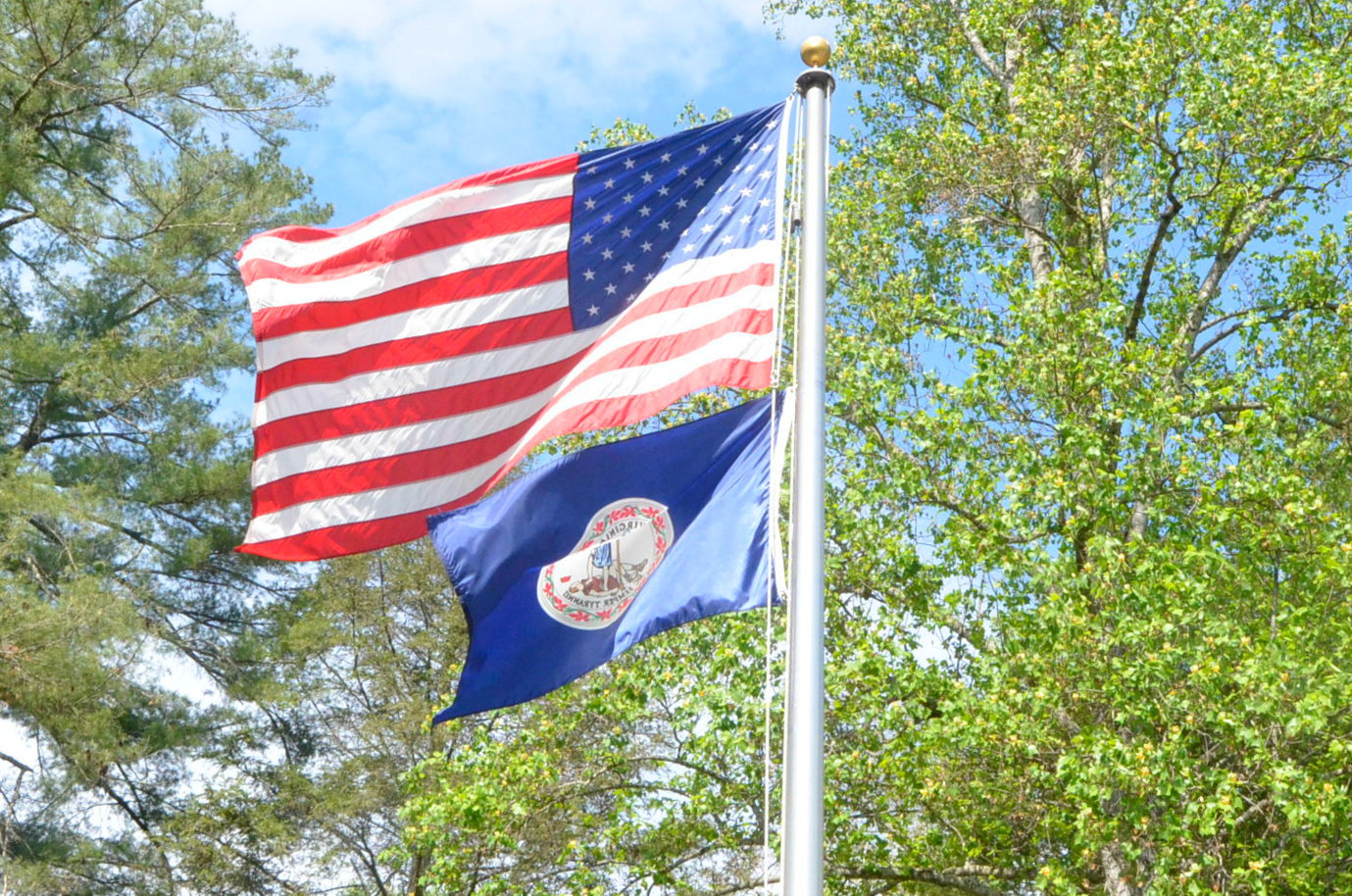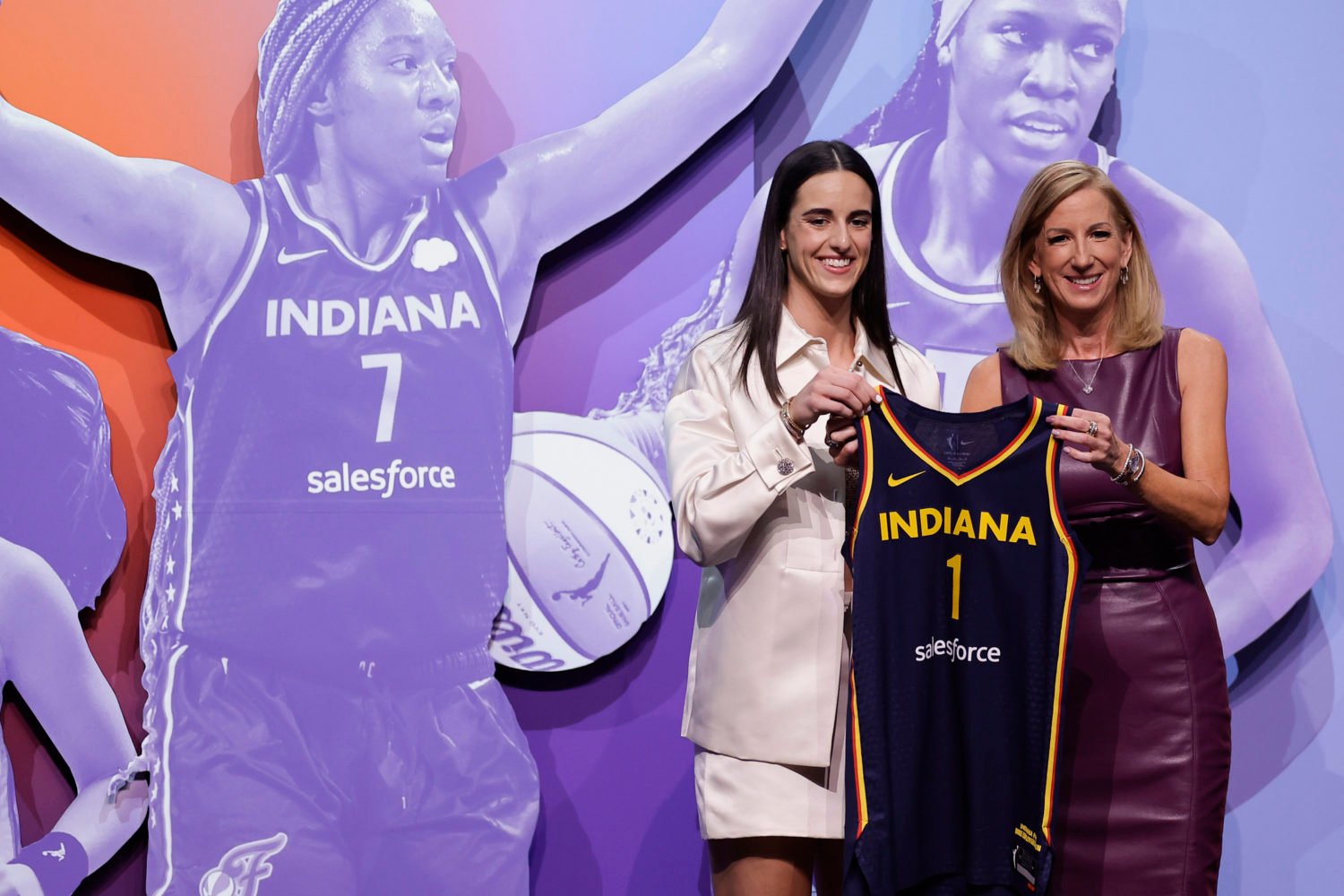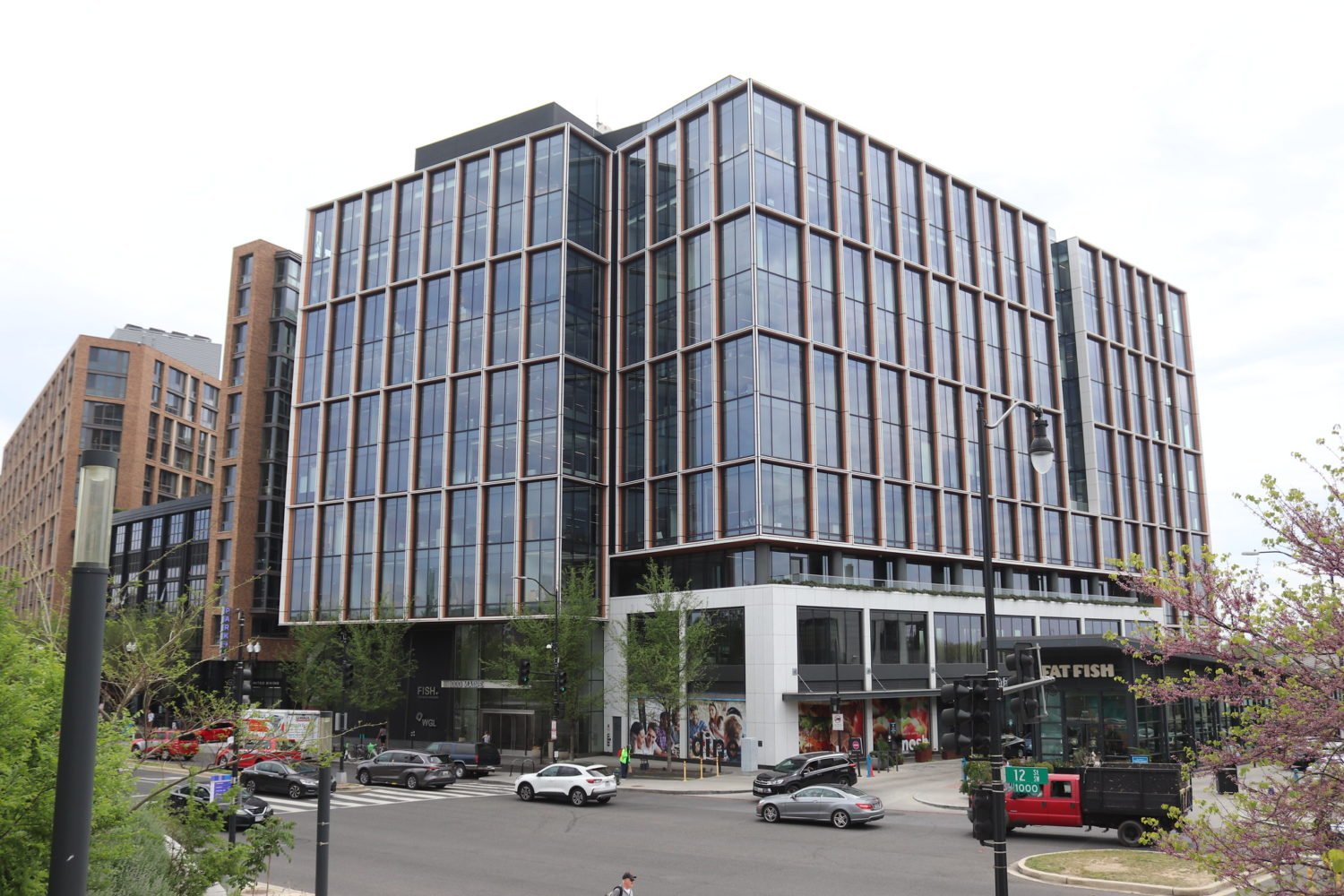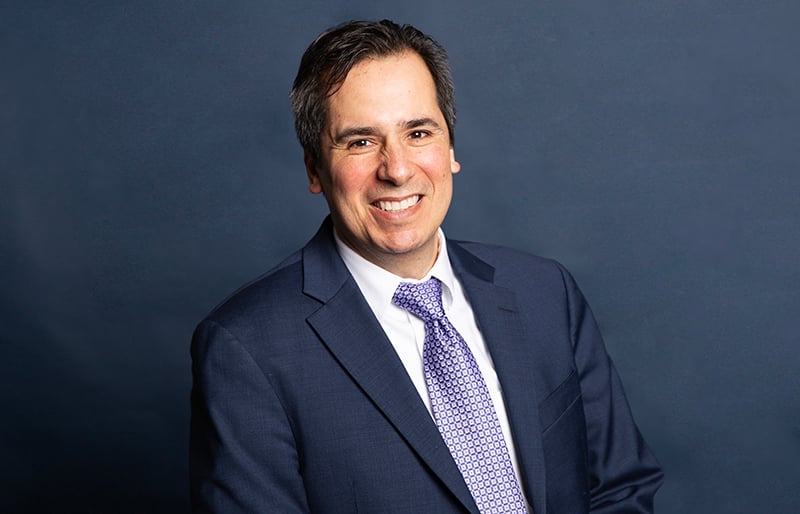Update: On May 12, Washington Commanders’s co-owners Tanya and Dan Snyder released the following statement: “We are very pleased to have reached an agreement for the sale of the Commanders franchise with Josh Harris, an area native, and his impressive group of partners. We look forward to the prompt completion of this transaction and to rooting for Josh and the team in the coming years.” The NFL still needs to approve the deal. Below is an article done in April 2023 on Josh Harris.
Our long local nightmare is finally over. Well, almost. And, uh, probably. On Thursday, Sportico and other media outlets reported that private equity billionaire Josh Harris has agreed in principle to buy the Washington Commanders from current owner Dan Snyder for a record $6 billion—potentially ending Snyder’s long and mostly ignominious reign over the city’s long-beloved, lately-maligned National Football League franchise.
Before a sale can be finalized, it will have to be approved by at least three-quarters of the league’s other 31 team owners, who next meet in person in May. There’s also a chance, according to ESPN, that Canadian billionaire Steve Apostolopoulos could still be in the mix for buying the team.
For now, however, it seems most likely that Harris—whose bidding group includes local billionaire Mitchell Rales and Hall of Fame basketball player Magic Johnson—will be the next Commanders owner. Here are five things to know about him:
He Has Local Ties—and Credits His Success to Youth Wrestling
A Chevy Chase native and the son of an orthodontist who was a college rower at the University of Pennsylvania, Harris attended The Field School in DC. At age nine, he later told Forbes, he won a wrestling tournament at a summer camp and fell in love with the sport.
Harris says the lessons he learned on the mat helped him turn B and C grades into A grades in high school, graduate summa cum laude from Penn—where he also wrestled—and excel in the financial world. “When I first started wrestling at a more competitive level, I wasn’t running, I wasn’t training as hard, I would lose badly,” he told Forbes. “You lose in wrestling, you’re literally physically dominated. That was a real lesson for life that hard work and grit and tenacity led to more positive outcomes.”
Harris has competed in marathons and triathlons and reportedly ran the 2010 New York City Marathon in a time of 3 hours, 53 minutes, 41 seconds. He is not to be confused with Australian distance runner Josh Harris, who briefly held the Beer Mile world record.
He’s Rich Enough to Own Multiple Sports Teams
Estimated to have a net worth of $7.6 billion, Harris owns a $32 million Miami mansion and has donated millions to Penn, the Philadelphia Police Athletic League, and in support of Philadelphia-area nonprofits. Last year, he gave $5 million to Harvard Business School to increase diversity in sports management and alternative investments.
Speaking of sports management, Harris has ample experience. Through Harris Blitzer Sports and Entertainment, Harris and business partner David Blitzer own the National Basketball Association’s Philadelphia 76ers (purchased in 2011 for $208 million), the National Hockey League’s New Jersey Devils (purchased in 2013 for $320 million), a minority stake in the English Premier League soccer team Crystal Palace, a NBA G League team, a minor league hockey team, a sports tech venture capital firm, and a small stake in the NFL’s Pittsburgh Steelers.
A group led by Harris previously tried to buy the NFL’s Denver Broncos, going so far as to tour the team’s facilities and meet with members of its coaching staff. The group reportedly was prepared to pay $5 billion for the Broncos but declined to enter a bidding war against the team’s eventual buyers, a group led by Walmart heir Rob Walton.
In 2013, Harris told Bloomberg News that he liked investing in sports because “I watch sports. I am a fan. I enjoy being involved at the highest level.”
He Made His Money in Money
After graduating from Penn’s Wharton Business School in 1986, Harris reportedly worked as a merger researcher for Drexel Burnham Lambert, the firm run by fellow Wharton graduate and “junk bond king” Michael Milken. He left in 1988 to get his MBA from Harvard, and alongside financiers Leon Black, Antony Ressler, and Marc Rowan co-founded the private equity firm Apollo Global Management.
At Apollo, Harris made headlines with a restructuring deal involving a Dutch chemical company that generated $10 billion in profits on a $2 billion investment, one of the most profitable private equity deals ever. In the Wall Street Journal, former Apollo employees described Harris as a workaholic who was:
… known to call people numerous times in a day to discuss a small investment and spend an entire meeting rehashing unresolved questions from his previous one. Even Mr. Harris’s friends joke about sometimes getting multiple calls from him in a single day to discuss the same matter.
[Harris] regularly dominated investment committee meetings, hammering young analysts about their financial models, former employees say. Not replying right away to a Saturday morning email from Mr. Harris would yield a response 10 minutes later of “?”. And he frustrated people with his iterative decision-making process, sometimes taking a year to decide not to do something.
In the same article, Harris didn’t exactly push back against his reputation. “Some people play golf,” he said. “Some people play tennis. I work.”
Harris stepped down from day-to-day management of Apollo in 2021 following a long and messy power struggle that would likely make for a pretty compelling HBO series. According to reports, Harris pushed Black, his longtime boss, to leave Apollo after it was revealed that Black had paid Jeffery Epstein (yep, that Jeffrey Epstein) more than than $150 million for what Black reportedly characterized as legal advice.
Black eventually left, but not before picking Rowen as his successor and later suing Harris for allegedly conspiring to destroy his reputation. Per the Wall Street Journal:
Tension between Leon Black and his Apollo Global Management Inc. co-founder Josh Harris is boiling over, threatening to buffet the investment giant with fresh controversy.
In a filing last week in a rape and defamation case brought by a woman with whom he has admitted to having a yearslong affair, Mr. Black accused Mr. Harris of plotting his removal from Apollo in an act of revenge for being passed over to succeed Mr. Black as chief executive officer.
The private-equity titan, who stepped down as Apollo’s CEO and chairman in March 2021, further suspects Mr. Harris encouraged his ex-lover, Guzel Ganieva, to publicly accuse him of rape and harassment. Mr. Black has been assembling emails and other material to try to prove the allegations, according to people familiar with the matter and copies of some of the emails that were viewed by The Wall Street Journal.
Mr. Harris “waged a highly coordinated and orchestrated campaign to destroy Mr. Black’s professional and personal reputation,” said Mr. Black’s lawyer, Susan Estrich. Mr. Harris’s advisers “whispered to investors, placed articles and ultimately supported and encouraged an effort by Ms. Ganieva to make knowingly false claims in the courts about her relationship with Mr. Black,” she said.
Mr. Harris, who stepped down from his day-to-day role at Apollo at the beginning of this year, vehemently denies the claims.
A federal judge threw out Black’s entire case last July, calling it “glaringly deficient in fundamental respects.” Last year, Harris began building a new firm, 26North Partners, which according to a spokesperson is named after the atomic number of iron and the number of miles in a marathon (26) and the direction the firm is heading (north).
He Supported the Controversial “Process”
Under Harris, the Sixers have become one of the best teams in the NBA’s Eastern Conference. But how the franchise got there was—and remains—a subject of heated debate among sports fans.
The franchise hired a general manager, Sam Hinkie, whose strategy was to be unapologetically terrible for multiple seasons, the better to accumulate as many high draft picks as possible and increase the Sixers’ odds of selecting a young superstar. Dubbed “the Process”—and also known as “tanking”—this Failing Now, A Whole Lot, In Order To Succeed Later method resulted in the Sixers winning just 10 of 82 games in the 2015-2016 season and reportedly led the NBA to pressure Harris to dump Hinkie and change course.
That said, the Process arguably worked. A bushel of top picks allowed the Sixers to draft superstar center Joel Embiid, a yearly Most Valuable Player candidate, and make trades to put quality talent around him. In 2018, Harris told the Associated Press that the Sixers—and also his NHL team, the Devils—making the playoffs for the first time since 2011-12 season was “validation” for the teardown approach.
“All these teams we started with a long-range plan and a real strategy about what we wanted to accomplish,” he said. “We knew it would take several years to get there. We inherited situations that were not set up as well as we would have liked. So this is more validation of what we thought. It’s much more fun to be going to games and matches now than to be planning for the draft lottery.”
He’s a Political Donor—Largely to Republicans
According to The Ringer, Harris made roughly $840,000 in political contributions between 2015 and 2020—$650,000 of that to Republicans, and $190,000 to Democrats. Among NBA owners, that isn’t unusual: while billionaires as a whole give somewhat equally to both parties, The Ringer found that 80 percent of NBA owner political donations in the 2020 election cycle went to Republicans or Republican causes.
Similarly, a 2016 billypenn.com article reported that while Harris had given money to individual Republican and Democratic candidates, his biggest donations since 2007 were to the National Republican Senatorial Committee (more than $123,000), the Republican National Committee ($30,000), a Republican PAC called the Congressional Leadership Fund ($100,000), and an unfortunately-named group called Romney Victory, Inc. ($38,300).
In 2018, the Guardian reported that the incoming Trump administration considered Harris a candidate for the job of Office of Management and Budget (OMB) director—something pushed for and supported by Trump son-in-law and advisor Jared Kushner—but that Harris declined because he didn’t have enough time to untangle his personal finances in order to accept the job. A Harris spokesman denied that Harris was offered the role, but did not dispute that a possible White House job had been discussed informally.
The New York Times reported that Harris paid “regular visits to the White House” in early 2017 to advise administration officials on infrastructure policy and meet with Kushner. In November of that year, Apollo lent $184 million to Mr. Kushner’s family real estate firm, Kushner Companies, to refinance the mortgage on a Chicago skyscraper—one of the largest loans the company received that year, and triple the size of the average property loan made by Apollo’s real estate lending arm.
Shortly after, the Times reported, Apollo benefitted from a Trump tax cut package that did not close a loophole permitting private equity managers to pay taxes on most of their income at much lower rates than ordinary income taxes—something Trump previously promised to change. In addition, the Securities and Exchange Commission dropped an inquiry of Apollo six weeks after the loan was made.
Neither Kushner or Harris were accused of any wrongdoing, and an Apollo spokesperson told the Times that Harris was not involved in the decision to loan money to the Kushner Companies. Representatives for both Kushner and Apollo told ABC News there was no quid pro quo or any other connection between the loan, the meetings, and the closure of the SEC inquiry.

